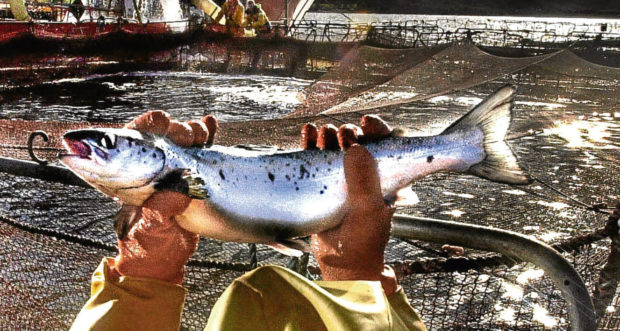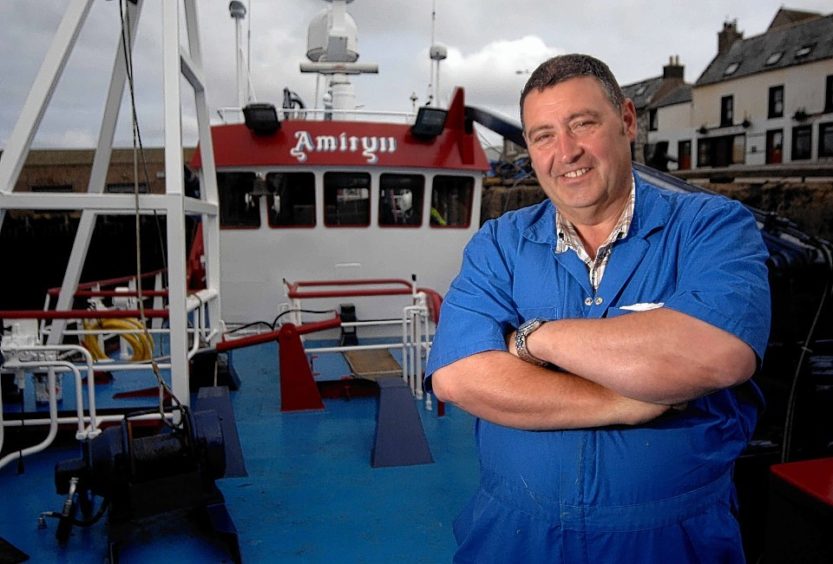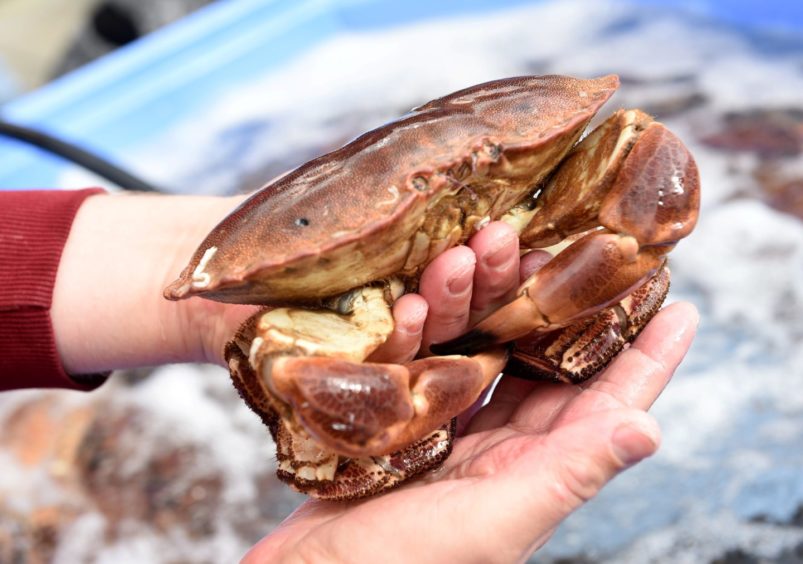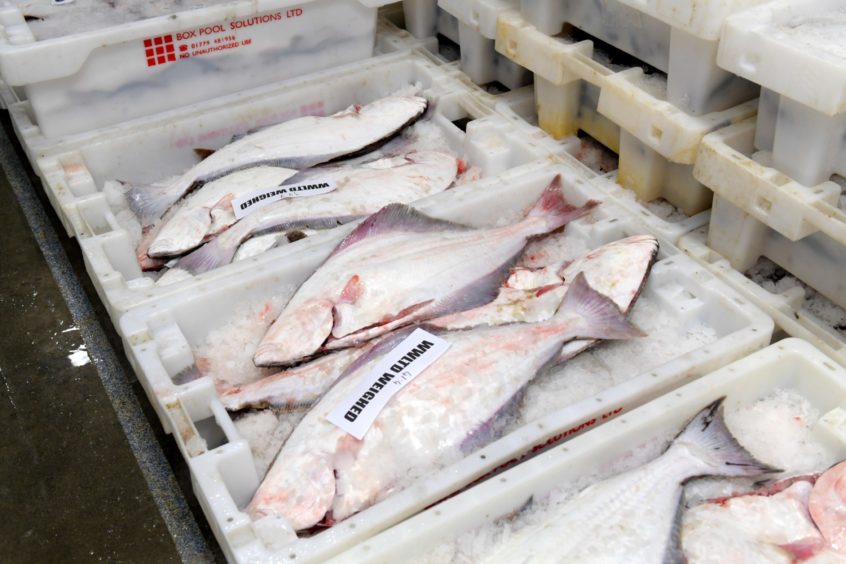Scotland’s seafood, fishing and food and drink industry will need to pull together to “thrive” in a post-Covid, post-Brexit world, experts have warned.
Industry leaders from fish processing and salmon industries and the Scottish Fisherman’s Federation appeared before the rural economy committee at Holyrood on Wednesday, where it was warned recovery depended on the reopening of the hospitality sector.
Jimmy Buchan, chief executive of the Scottish Seafood Association, said the industry was likely to survive the current pandemic, but it should be “thriving” in future as long as everyone pulled in the right direction.
Hotel and restaurant closures have had the largest impact on Scotland’s seafood industry, with around 55% of custom coming from the hospitality sector.
At Peterhead landings had reduced by 40%, while shellfish catches were down by half and selling 50% cheaper than they should be.
The salmon industry had been more adversely impacted by overseas trading.
China is the industry’s third-largest market but has dropped significantly because of the coronavirus and subsequent food scares.
James Withers, of Scottish Food and Drink, warned that due to Covid-19 as much as £3 billion could be wiped from the industry in 2020, which usually has a productivity of closer to £15 billion.
Peterhead slowly getting back to normal
The country’s North Sea fishing fleet was most impacted by the lockdown, warned Elspeth Macdonald, chief executive of the Scottish Fishermen’s Federation.
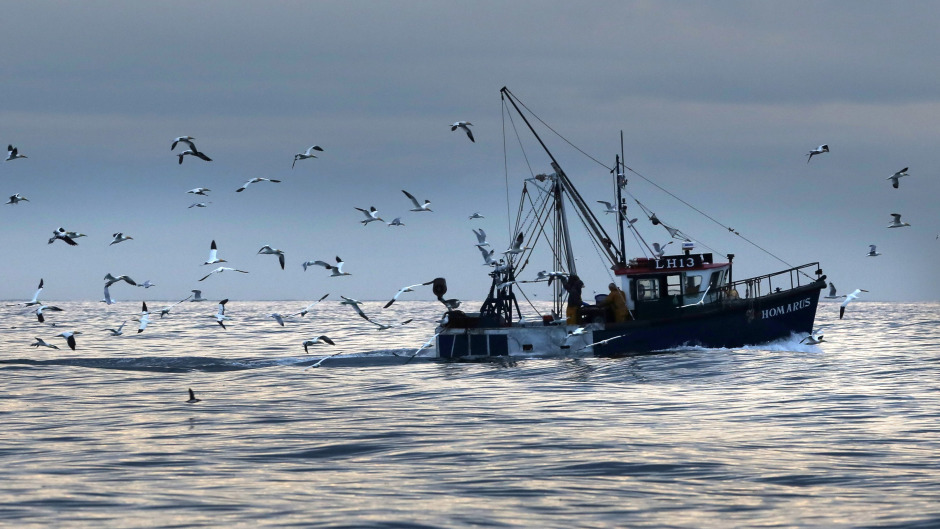
The limit on the number of boxes has risen from its low point of 5,000 per day in March, she noted, while Scottish fishermen were having particular difficulties landing catches in France.
French processors had placed “enormous pressure”, she said, on French retailers to support French catches only. French fishing vessels were still able to land and sell fish in Peterhead. White fish catches had reduced, but shellfish overall had been worst hit.
She said: “The fish catching sector has obviously been significantly hit by Covid-19.
“It was early and hit particular parts of industry hard, particularly in the shellfish fleet.
“There is a very high reliance on the hospitality and food service sectors at home and abroad for shellfish, so it is safe to say that is the part of the fleet hit most severely.
“When we look back at lockdown across the UK it is fair to say the prawn fleet has been most significantly hit – we are catching half the volume we were this time last year for half the price. The impact has been very significant.
“There was also a significant and early impact on inshore shellfish fleet – lobsters and crabs etc – and also significant impact on our white fish fleet.
“That part of the fleet managed to keep fishing but there was a significant reduction in activity.
“When we look at the landings at Peterhead market, for example, from March to May landings were down 40%.
“Obviously the market had to put limits in place to manage the landings they could handle due to social distancing requirements.
“So there has been significant impact on the fishing sector. The market has been volatile, there is still a market for white fish but it has been up and down, entirely unpredictable.
“It’s been hard to plan for landing to meet demand.
“But there has been very good communication for the last few months across the supply chain to try to manage what has been a very difficult situation.
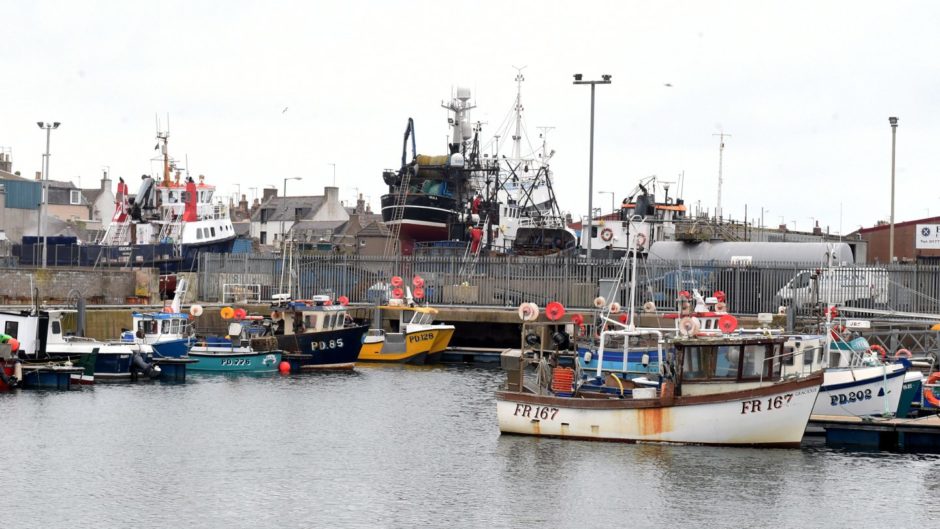
“(The crisis) has shown to us the very high reliance the industry has on the hospitality sector. I am not sure there is a lot we can do about short term, but around 55% of the UK seafood market is hospitality.
“Because that has been completely closed over the last few months, UK and abroad, it has had a really significant impact on us. It has been a very difficult few months with a variable impact across the fleet.”
Brexit still causing uncertainty
Mr Buchan added unknowns about withdrawal from the EU in 2021 was still a cause for concern for a number of fishing and north-east businesses.
He said: “I felt there was a lack of clear guidance for food producers in the initial stages.
“There was total confusion, we didn’t know if we were key workers or if we weren’t key workers because we weren’t given the correct guidelines quickly enough.
“Therefore a lot of businesses went into shutdown when possibly there was no need to do that, only to find two or three weeks later they were back again.”
He continued: “We are past the talking shop, past the lip-service, we now need action.
“We are within six months of Brexit and we still do not know what the future holds for us. One thing business does not like is uncertainty and right now that’s what we are sitting with.”
Salmon farm reform could kick-start recovery
Julie Hesketh-Laird, chief executive of Scottish Salmon Producers’ Organisation, called for changes to the way salmon farms are prioritised in Scotland.
Large, more efficient farms, she said, were out of favour compared to smaller ones, something which re-regulation could improve.
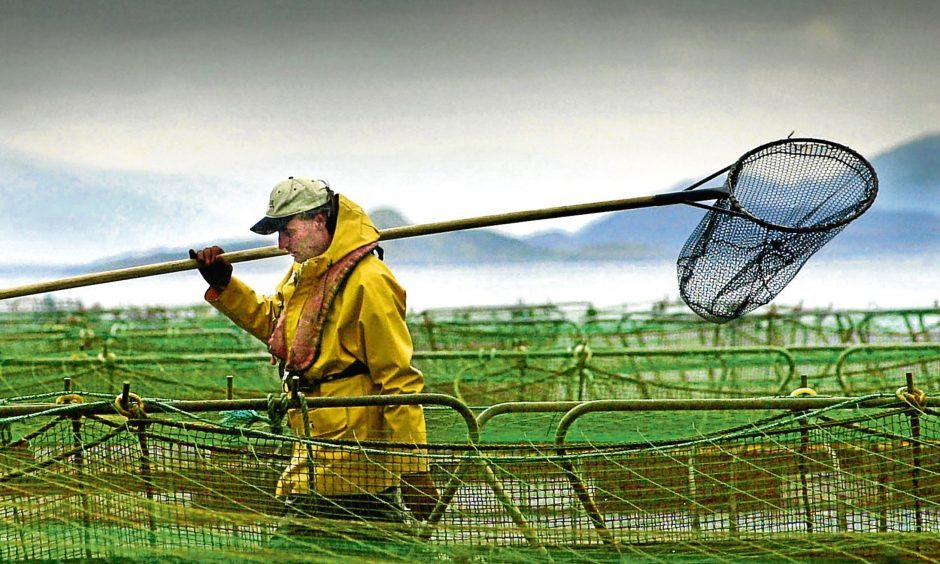
She said: “The salmon farming sector was hit quite early on by Covid. The Chinese market slowed down significantly in January, China being the third-biggest market for salmon exports, so we felt the impact early on.
“With the lack of export opportunity farmers had to change their methods.
“Fish welfare and people welfare has been very important throughout the outbreak… farmers worked quickly at the beginning of the outbreak to put measures in place to look after their fish and ensure work patterns were going ahead, with minimal numbers of people so social distancing could be kept in place.”
She added: “If we could break out of costly, inefficient ways of farming would help unlock recovery in Scottish salmon farming recovery.”
Right now we can survive, but really need to thrive.”
Jimmy Buchan
Mr Buchan agreed regulation was key to keeping the industry on track, noting boats could sell direct and avoid processing sites legally — but warned regulation would be needed to protect the food supply and make sure only the best was getting on to plate and table.
He added: “Seafood Scotland, Seafish, Scotland Food and Drink have all played a huge part in moving the industry forward.
“Right now we can survive, but really need to thrive.
“We need the investment. We have put a paper together to say what we need, but it is absolutely vital – post-Covid, post-Brexit – that we all start working with enthusiasm and cohesiveness, but it needs absolutely everyone on board.
“We can make this work, all pulling in the same direction.”
